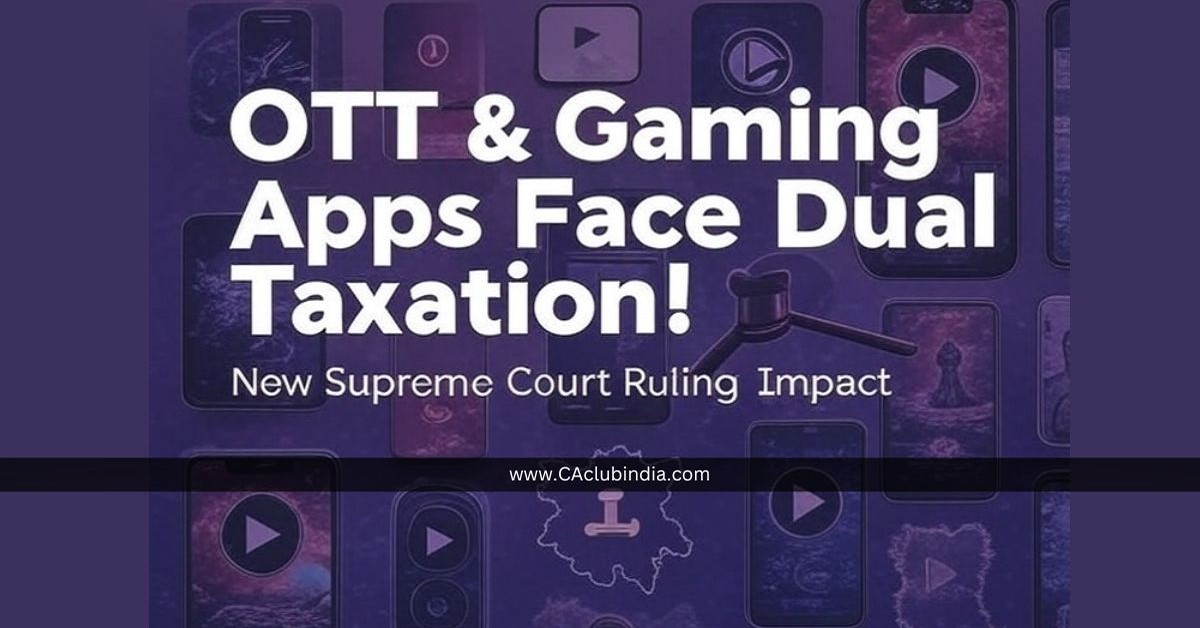A recent Supreme Court ruling permitting dual taxation on television broadcasters has sparked widespread concern across India's rapidly growing over-the-top (OTT) and digital entertainment industry. According to tax experts, the May 22 judgment could increase the tax burden on subscription-based platforms such as Netflix, Amazon Prime Video, gaming apps, and other digital content providers.
The ruling, delivered by a bench comprising Justices B.V. Nagarathna and N.K. Singh, involved a case relating to Asianet Satellite Communications and clarified that the act of broadcasting comprises two distinct taxable aspects-a service component and an entertainment component.

Centre and States Can Tax Separately
The apex court held that:
- The Central Government can levy service tax on the act of broadcasting.
- The State Governments can impose entertainment tax on the content consumed by viewers.
This judgment is rooted in the "aspect theory", which permits taxation of different aspects of a single activity by different authorities. While the case pertains to the pre-GST era, experts warn that the ruling could have far-reaching implications in the current tax framework.
OTT Platforms and Gaming Apps May Face Double Tax
Tax professionals believe the ruling paves the way for dual taxation even in the digital age. This could allow:
- State and local bodies to reimpose entertainment taxes, including on online content, gaming, and live streams.
- Additional levies through municipal laws, such as the Haryana Municipal Entertainment Duty Act (2019) and Maharashtra Entertainments Duty Act (2023).
- A revival of localised taxes on events, performances, or digital media access-even those already covered under GST.
For example, Tamil Nadu currently levies both GST and entertainment tax on IPL match tickets, a model that could now extend to digital platforms.
Industry Concerns: Uncertainty & Compliance Burden
Experts argue the judgment has:
- Eroded the unified tax framework envisioned under GST, which subsumed various indirect taxes including entertainment tax.
- Introduced uncertainty and risk of overlapping levies, particularly for content creators and streaming services operating across multiple states.
- Raised the spectre of fragmented tax compliance, especially for companies offering content globally with no fixed territorial boundaries.
"Despite operating under the streamlined GST regime, OTT platforms may now be forced to navigate state-wise levies, which adds a layer of complexity and cost," a tax expert noted.
The GST Council may now have to intervene to ensure uniformity and protect the digital ecosystem from regressive taxation policies.







 CAclubindia
CAclubindia

